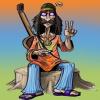Thoughts on a changing internet
SUPPORTER
Posts: 2953
Joined: 30 dic 2010
Hello folks, time for a little read on a sunday?
If you look really closely at my personal wikiloops registration date (below my avatar image), then you'll notice that today is my 8th anniversary on wikiloops.
It was on the 30th of december 2010 when I installed a community/forum software on some small 5$-per-month webspace and (quite clueless) started hacking it into something which you know by the name of wikiloops.com.
Eight years later, I'm once again spending my time "between the years" coding on wikiloops and recollecting the events of the passing year, and while this post shall not serve the purpose of a 2018 wikiloops review,
I'd like to share a few thoughts about the world wide web as it has changed over the years.
I'd like to invite you to have a quick look back at how the web evolved, and I guess you can relate to most of the things I'll talk about, even tho you might not be familiar with some technical terms (feel free to ask).
Let me offer you my personal list of notable "internet milestones" - I'll begin in 1996:
1996 - to me, the web consisted of AltaVista Search engine and being able to write emails. We listened to screeching modems back then and waited minutes to load a page.
until around the year 2000 - these were the "wild west" times of "web 1.0", when there was hardly any option to interact on a webpage.
Sites were "read only", while peer-to-peer networks like eMule or Napster played a huge role in exchanging software and media files of questionable copyright and origin, and were eventually taken down for that.
The very first on-site interactions that came about were guestbooks which one could embed in ones website,
followed by forum software, and sites offering to host your blog.
2002-2005 The revolution towards the so called "web 2.0": an internet, in which it suddenly became common place to have web content created thru users.
Places like YouTube, MySpace and Ebay started offering zillions of pages which were user-created, and projects like the wikipedia took great benefit from the technical opportunity to let users participate in the web-publishing process.
While the technical web got quite a lot faster in these years, things like video and audio streaming became less time demanding and more common, and whilst CD sales went down, the music industry focused on selling digital downloads via iTunes or Amazon Music.
During the same period, people shifted from pure-phone handhelds with text messaging capability to android or ios powered smartphone devices, leading to a temporary demand to offer two versions of any website: one for mobile devices with small touchscreens, and one for the common desktop machines.
A first generation of webpages and online projects died over the web 2.0 change: The enthusiast programmers either couldn't keep up with the fast technical changes and new demands for things like mobile browsers, or their sites simplay vanished from the (by now) dominating Goole search index listings for being old-fashioned.
My first website http://www.funkhausflowsdorf.com ended in that situation - if you follow the link, you'll get to see a 90s standard page, and your browser will throw several warnings because it uses flash and is not served via a secure connection - things which were totally common until a few years ago.
From 2005 on, we've seen the rise of Social Media platforms like Facebook or Twitter, who took advantage of the technical changes and convinced a lot of web users their service was much hipper than any of the smaller web communities that used to be out there.
If someone ran a hobby forum on cat photos (or any other topic) and didn't cope with the need to develop a mobile friendly site, smartphone apps for two different operating systems and the most pleasant instant feedback offered by the big networks, the chance of seeing ones community survive against Facebook was small.
And so a lot of the old projects went asleep for good, whilst the big networks grew and grew, buying those projects that seemed promising to them (think of Instagram, Whatzapp etc).
By 2010 there were several local networks who gave up competing with facebook, a well known german one was called "Wer kennt wen" (who knows whom) - despite having millions of users, they simply closed the project down. This trend continues until today, when even Google announced in 2018 that they are ending their Google+ network, which used to be their attempt to start something facebook-like.
When I started coding wikiloops in 2011, average web connection speeds were still quite low, streaming a 128k mp3 without interruptions was possible on a good day, but higher bitrates would have a high chance to stutter, so 128k mp3 quality had to be the limit. Watching a video stream in full HD was completely out of bounds back then.
As I went out seeking to promote wikiloops in 2011, there were still quite a number of music related forums which one could spot via Google search, and which had a certain level of livelyness.
I'd say that by today about 50% of these communities have either vanished or have been moved into cooperate ownership - I'll name one which I've always looked at as one of wikiloops competitors: http://www.icompositions.com - they gave up after 15 years in 2018.
But let me try to stick to the chronology:
One might think the swing towards social media netorks + the swing towards using mobile devices was the latest news in web history, but let's take a closer look at what happened since 2010:
The first notion of social media having an impact on political change which I can remember must have been around 2010, when there were several revolutions in north-african states (referred to as "arab spring revolutions"). European media reported that the protest had been organized mostly thru twitter and means of other social networks, which -at the time- was something new.
I believe it is safe to say that there have been several other political decisions since whichs outcomes have been influenced via social networks, be it the Brexit or election campaigns around the world. Every modern politician has a social media advice team, and using so called social bots to promote certain political views seems to be a common practice.
This has lead to the perception that the internet as a whole is a source of what is commonly referred to as "fake news", and people are thinking of ways to deal with this new insecure feeling.
The social networks are tweaking their algorythms, and so are the search engines, or at least the all-dominating google search, which holds an almost-monopoly of more than 90% of all websearches.
The whole "fake news" discussion forced Google to re-think about which trustworthy search results to offer to its users, and they are obviously following the logic of: "If the author of some web content is known and belongs to some trustworthy organization, that piece of content is better than some unknown users guest post.".
While that is a valid logic, it has a tremendous effect on user created communities.
The formerly open-to-anyone HuffingtonPost project actually ended the open-submission policy this year to meet Googles expectations, while the whole user-created-content web has been de-ranked and pushed to search results page 3+... these are not good conditions for small enthusiast projects which are built on user contributions.
Another effect on the web experience which I would credit to the social networks is what is reffered to as "filter bubbles".
"Filter bubble" describes a specific state of online users: A person gets trapped in a filter bubble when the machine-learning algorythm of a social network or search engine will eventually present them only such content which they will more or less agree with.
Any content which the user would not agree with is filtered out, leading to a smoother user experience, and the mislead impression that the whole of the world shares one "right" opinion.
While the real world is (and the early internet was) full of challenges and often presents a multitude of "right, yet different" views which train us to stay open-minded and tolerant,
filter bubbles give us a chance to escape into a world which is purely like minded (mind: that works outside of the digital world as well).
The issue about digital filter bubbles is that they are much harder to escape, even your favorite search engine "learns" to serve you pages which will be interesting to you. The really eye-opening content might be displayed on search results page 16, while the top results are a mix of payed advertisements and seemingly harmless pages that reflect your overall interests (your bubble).
I'd conclude that these are not ideal conditions for learning new things and growing towards something new, something which the initial "wild web" offered.
Last, one needs to mention the hard-to-ignore increase in hatefull communications on the internet.
Terms like "Troll", "flaming" and "bashing" were known ever since there were web communities, and it used to be a quality of any community to moderate these things.
By today, the large networks employ thousands of so called "cleaners" who monitor reported content and remove the ugliest of the ugly, but the different appoaches of the human moderator who feels "i'll keep this place clean of hate" to some employed "cleaner" who only acts when the damage has been long done is noteable.
There is a recently published research in Germany which revealed that over 40% of young people aged between 14 and 24 feel scared to post anything public on the internet because of the expectable rude reactions.
Their trend in online use obviously goes towards smaller groups of personally known people, and away from using the internet to discover the unknown.
I believe something similar can be observed outside of that age group, too: The more sensitive someone is, the less likely he or she is to dare to post something publicly.
This retreat into silence is totally common, so what is left in many public comment sections are the posts of the less-sensitive who quickly dominate the discussion. I do believe that the feeling of "nobody will protect me from being attacked online" is something which we all learned by using huge anonymous social networks without any human moderation.
The "wild west days" were not free of conflicts, but the majority of the web was moderated by humans, so it felt quite different from todays experience on public networks.
I'll skip another paragraph on why there are so few altruistic free sites out there any longer, I guess the overall context explained so far reveals enough to understand that learning some html code (all you needed in the 90s) is no longer sufficient to put a foot on digital grounds.
Just for the fun of it, let me recollect: In the past 8 years, wikiloops evolved from plain html + flash to php + html5 + ajax, via jQuery, now back to pure Javascript, added responsive CSS3 and 10 interface updates... I've tried to keep up with the webs evolution as good as possible, not always making it in time, but hey, wikiloops is still online tonight :)
Now, let me wrap this up - what I have assembled here may read like "the slow death of the free internet" to some,
and I'm affraid that impression is not all wrong.
On the other hand, we have managed to keep wikiloops around for another year, and -thanks to the supporters- will be able to keep it going in 2019.
Maybe the best conclusion to draw here is this:
yes, the world and the web are constantly changing, and yes, the age of creative & collaborative projects popularity may have passed by - something which might be said about "making music", too, if we recollect the troubles reported by the guitar manufacturing industry.
Instead of feeling sad about that, we might as well feel priviledged to be taking part in something that still carries the idea of using the web to learn and to collaborate, and to have been witness to one of the most dramatic events in human history:
The discovery of the world wide web.
Thanks for taking the time for the read & looking foreward to your thoughts if you dare to share them ;)
If you look really closely at my personal wikiloops registration date (below my avatar image), then you'll notice that today is my 8th anniversary on wikiloops.
It was on the 30th of december 2010 when I installed a community/forum software on some small 5$-per-month webspace and (quite clueless) started hacking it into something which you know by the name of wikiloops.com.
Eight years later, I'm once again spending my time "between the years" coding on wikiloops and recollecting the events of the passing year, and while this post shall not serve the purpose of a 2018 wikiloops review,
I'd like to share a few thoughts about the world wide web as it has changed over the years.
I'd like to invite you to have a quick look back at how the web evolved, and I guess you can relate to most of the things I'll talk about, even tho you might not be familiar with some technical terms (feel free to ask).
Let me offer you my personal list of notable "internet milestones" - I'll begin in 1996:
1996 - to me, the web consisted of AltaVista Search engine and being able to write emails. We listened to screeching modems back then and waited minutes to load a page.
until around the year 2000 - these were the "wild west" times of "web 1.0", when there was hardly any option to interact on a webpage.
Sites were "read only", while peer-to-peer networks like eMule or Napster played a huge role in exchanging software and media files of questionable copyright and origin, and were eventually taken down for that.
The very first on-site interactions that came about were guestbooks which one could embed in ones website,
followed by forum software, and sites offering to host your blog.
2002-2005 The revolution towards the so called "web 2.0": an internet, in which it suddenly became common place to have web content created thru users.
Places like YouTube, MySpace and Ebay started offering zillions of pages which were user-created, and projects like the wikipedia took great benefit from the technical opportunity to let users participate in the web-publishing process.
While the technical web got quite a lot faster in these years, things like video and audio streaming became less time demanding and more common, and whilst CD sales went down, the music industry focused on selling digital downloads via iTunes or Amazon Music.
During the same period, people shifted from pure-phone handhelds with text messaging capability to android or ios powered smartphone devices, leading to a temporary demand to offer two versions of any website: one for mobile devices with small touchscreens, and one for the common desktop machines.
A first generation of webpages and online projects died over the web 2.0 change: The enthusiast programmers either couldn't keep up with the fast technical changes and new demands for things like mobile browsers, or their sites simplay vanished from the (by now) dominating Goole search index listings for being old-fashioned.
My first website http://www.funkhausflowsdorf.com ended in that situation - if you follow the link, you'll get to see a 90s standard page, and your browser will throw several warnings because it uses flash and is not served via a secure connection - things which were totally common until a few years ago.
From 2005 on, we've seen the rise of Social Media platforms like Facebook or Twitter, who took advantage of the technical changes and convinced a lot of web users their service was much hipper than any of the smaller web communities that used to be out there.
If someone ran a hobby forum on cat photos (or any other topic) and didn't cope with the need to develop a mobile friendly site, smartphone apps for two different operating systems and the most pleasant instant feedback offered by the big networks, the chance of seeing ones community survive against Facebook was small.
And so a lot of the old projects went asleep for good, whilst the big networks grew and grew, buying those projects that seemed promising to them (think of Instagram, Whatzapp etc).
By 2010 there were several local networks who gave up competing with facebook, a well known german one was called "Wer kennt wen" (who knows whom) - despite having millions of users, they simply closed the project down. This trend continues until today, when even Google announced in 2018 that they are ending their Google+ network, which used to be their attempt to start something facebook-like.
When I started coding wikiloops in 2011, average web connection speeds were still quite low, streaming a 128k mp3 without interruptions was possible on a good day, but higher bitrates would have a high chance to stutter, so 128k mp3 quality had to be the limit. Watching a video stream in full HD was completely out of bounds back then.
As I went out seeking to promote wikiloops in 2011, there were still quite a number of music related forums which one could spot via Google search, and which had a certain level of livelyness.
I'd say that by today about 50% of these communities have either vanished or have been moved into cooperate ownership - I'll name one which I've always looked at as one of wikiloops competitors: http://www.icompositions.com - they gave up after 15 years in 2018.
But let me try to stick to the chronology:
One might think the swing towards social media netorks + the swing towards using mobile devices was the latest news in web history, but let's take a closer look at what happened since 2010:
The first notion of social media having an impact on political change which I can remember must have been around 2010, when there were several revolutions in north-african states (referred to as "arab spring revolutions"). European media reported that the protest had been organized mostly thru twitter and means of other social networks, which -at the time- was something new.
I believe it is safe to say that there have been several other political decisions since whichs outcomes have been influenced via social networks, be it the Brexit or election campaigns around the world. Every modern politician has a social media advice team, and using so called social bots to promote certain political views seems to be a common practice.
This has lead to the perception that the internet as a whole is a source of what is commonly referred to as "fake news", and people are thinking of ways to deal with this new insecure feeling.
The social networks are tweaking their algorythms, and so are the search engines, or at least the all-dominating google search, which holds an almost-monopoly of more than 90% of all websearches.
The whole "fake news" discussion forced Google to re-think about which trustworthy search results to offer to its users, and they are obviously following the logic of: "If the author of some web content is known and belongs to some trustworthy organization, that piece of content is better than some unknown users guest post.".
While that is a valid logic, it has a tremendous effect on user created communities.
The formerly open-to-anyone HuffingtonPost project actually ended the open-submission policy this year to meet Googles expectations, while the whole user-created-content web has been de-ranked and pushed to search results page 3+... these are not good conditions for small enthusiast projects which are built on user contributions.
Another effect on the web experience which I would credit to the social networks is what is reffered to as "filter bubbles".
"Filter bubble" describes a specific state of online users: A person gets trapped in a filter bubble when the machine-learning algorythm of a social network or search engine will eventually present them only such content which they will more or less agree with.
Any content which the user would not agree with is filtered out, leading to a smoother user experience, and the mislead impression that the whole of the world shares one "right" opinion.
While the real world is (and the early internet was) full of challenges and often presents a multitude of "right, yet different" views which train us to stay open-minded and tolerant,
filter bubbles give us a chance to escape into a world which is purely like minded (mind: that works outside of the digital world as well).
The issue about digital filter bubbles is that they are much harder to escape, even your favorite search engine "learns" to serve you pages which will be interesting to you. The really eye-opening content might be displayed on search results page 16, while the top results are a mix of payed advertisements and seemingly harmless pages that reflect your overall interests (your bubble).
I'd conclude that these are not ideal conditions for learning new things and growing towards something new, something which the initial "wild web" offered.
Last, one needs to mention the hard-to-ignore increase in hatefull communications on the internet.
Terms like "Troll", "flaming" and "bashing" were known ever since there were web communities, and it used to be a quality of any community to moderate these things.
By today, the large networks employ thousands of so called "cleaners" who monitor reported content and remove the ugliest of the ugly, but the different appoaches of the human moderator who feels "i'll keep this place clean of hate" to some employed "cleaner" who only acts when the damage has been long done is noteable.
There is a recently published research in Germany which revealed that over 40% of young people aged between 14 and 24 feel scared to post anything public on the internet because of the expectable rude reactions.
Their trend in online use obviously goes towards smaller groups of personally known people, and away from using the internet to discover the unknown.
I believe something similar can be observed outside of that age group, too: The more sensitive someone is, the less likely he or she is to dare to post something publicly.
This retreat into silence is totally common, so what is left in many public comment sections are the posts of the less-sensitive who quickly dominate the discussion. I do believe that the feeling of "nobody will protect me from being attacked online" is something which we all learned by using huge anonymous social networks without any human moderation.
The "wild west days" were not free of conflicts, but the majority of the web was moderated by humans, so it felt quite different from todays experience on public networks.
I'll skip another paragraph on why there are so few altruistic free sites out there any longer, I guess the overall context explained so far reveals enough to understand that learning some html code (all you needed in the 90s) is no longer sufficient to put a foot on digital grounds.
Just for the fun of it, let me recollect: In the past 8 years, wikiloops evolved from plain html + flash to php + html5 + ajax, via jQuery, now back to pure Javascript, added responsive CSS3 and 10 interface updates... I've tried to keep up with the webs evolution as good as possible, not always making it in time, but hey, wikiloops is still online tonight :)
Now, let me wrap this up - what I have assembled here may read like "the slow death of the free internet" to some,
and I'm affraid that impression is not all wrong.
On the other hand, we have managed to keep wikiloops around for another year, and -thanks to the supporters- will be able to keep it going in 2019.
Maybe the best conclusion to draw here is this:
yes, the world and the web are constantly changing, and yes, the age of creative & collaborative projects popularity may have passed by - something which might be said about "making music", too, if we recollect the troubles reported by the guitar manufacturing industry.
Instead of feeling sad about that, we might as well feel priviledged to be taking part in something that still carries the idea of using the web to learn and to collaborate, and to have been witness to one of the most dramatic events in human history:
The discovery of the world wide web.
Thanks for taking the time for the read & looking foreward to your thoughts if you dare to share them ;)
+13

SUPPORTER
Posts: 929
Joined: 14 feb 2018
Thanks Richard, for the good recap.
You left out a bit, like IRC (which existed before there was a "mouse" controlled "surfable" internet, and which still exists today, even if nobody's looking anymore). For those who are too young to have lived through that, there's a quite good book about it: "Surfing on the internet", by J. C. Herz.
And yes, I do feel privileged to be amongst friends here (most of whom I haven't even met in real life yet) who share something special. It's a game of give & take, as Santana sung on his album "Borboletta" - so let's not leave the internet to merchants and noisy brats on Twitter (the German word "Schreihals" hits it pretty exactly), but let's continue to do something out of pure love for the sake of it.
Also, there are better search engines which don't lead you into filter bubbles - I'm using DuckDuckGo for this instead of Google or other engines.
Yes, I feel privileged and lucky, so let me say thanks for my first year with all of you.
And let's keep on making some noise in 2019. Thanks Richard, thanks everyone else.
Have a good 2019.
Cheers,
Wolfgang
Edit: https://www.youtube.com/watch?v=u8_4ZCg9wpg
You left out a bit, like IRC (which existed before there was a "mouse" controlled "surfable" internet, and which still exists today, even if nobody's looking anymore). For those who are too young to have lived through that, there's a quite good book about it: "Surfing on the internet", by J. C. Herz.
And yes, I do feel privileged to be amongst friends here (most of whom I haven't even met in real life yet) who share something special. It's a game of give & take, as Santana sung on his album "Borboletta" - so let's not leave the internet to merchants and noisy brats on Twitter (the German word "Schreihals" hits it pretty exactly), but let's continue to do something out of pure love for the sake of it.
Also, there are better search engines which don't lead you into filter bubbles - I'm using DuckDuckGo for this instead of Google or other engines.
Yes, I feel privileged and lucky, so let me say thanks for my first year with all of you.
And let's keep on making some noise in 2019. Thanks Richard, thanks everyone else.
Have a good 2019.
Cheers,
Wolfgang
Edit: https://www.youtube.com/watch?v=u8_4ZCg9wpg
+9

Daddario EXL170
Electric Bass String Set

22,90 €
iThis widget links to Thomann, our affiliate partner. We may receive a commission when you purchase a product there.
Visit Shop

SUPPORTER
Posts: 763
Joined: 7 gen 2013
Thanks Richard for the heads up !
I still remember using 9.2 and 14K modems and the sound these toys were producing ... the DSL and nowadays fiber network raised the possibilities by entire universes ... but
I can still remember the demo makers scene of back in the days when developers had to be creative with computers of this era : 64K memory and floppy yet they managed to run minutes long of animated mind blowing videos with music ! ôÔ
Nowadays the bandwith and potential content has reached a level way passed what we were imagining back then in our craziest delusional fantasies !
Though i can't help but getting more and more the same feeling year after year : the internet is turning into some kind of standardized disneyworld with a department for every class of consumers ... and to be honest i don't feel very comfortable realizing i'm one of them no matter what !
Like you said : the discovery of the www was quite painful and even lethal for many pioneering communities ! The future of personal surfing looks very much like VPN and shielding against everything you mentioned (now that we have learned !)
In a way the Wikiloops project has proven them wrong (surviving this long) ! I really like the thought that people united in a project can decide their own fate and keep sharing their music freely just for the beauty of it !
Wish you and your family a wonderful 2019 :)
I still remember using 9.2 and 14K modems and the sound these toys were producing ... the DSL and nowadays fiber network raised the possibilities by entire universes ... but
I can still remember the demo makers scene of back in the days when developers had to be creative with computers of this era : 64K memory and floppy yet they managed to run minutes long of animated mind blowing videos with music ! ôÔ
Nowadays the bandwith and potential content has reached a level way passed what we were imagining back then in our craziest delusional fantasies !
Though i can't help but getting more and more the same feeling year after year : the internet is turning into some kind of standardized disneyworld with a department for every class of consumers ... and to be honest i don't feel very comfortable realizing i'm one of them no matter what !
Like you said : the discovery of the www was quite painful and even lethal for many pioneering communities ! The future of personal surfing looks very much like VPN and shielding against everything you mentioned (now that we have learned !)
In a way the Wikiloops project has proven them wrong (surviving this long) ! I really like the thought that people united in a project can decide their own fate and keep sharing their music freely just for the beauty of it !
Wish you and your family a wonderful 2019 :)
+8
SUPPORTER
Posts: 2085
Joined: 27 set 2014
Nice article Dick :W Yes the internet is transforming and changing, and I guess it will do so for many years... hopefully for the better. At the moment, the amount of hate and futile arguments on the internet is indeed disturbing, that's what I like about Wikiloops, it's nice and pleasant - long may it stay this way.
P.S. I really enjoyed your virtual bass, what a cool idea :D http://www.funkhausflowsdorf.com/F%20IV/html/virtual_upright_bass.html
P.S. I really enjoyed your virtual bass, what a cool idea :D http://www.funkhausflowsdorf.com/F%20IV/html/virtual_upright_bass.html
+7

SUPPORTER
Posts: 147
Joined: 14 set 2016
Oh yeah ! I remember it well. Thank you for your diligence in upgrading and the continuation of the loops. My wonderful escape from reality were I get to jam with some of the best performers and creative minds of in world. “ Music from the heart and freedom from the overlords “ :D Out side the box and dogs off leaches. :D
+5

Member
Posts: 522
Joined: 27 feb 2015
A very interesting read, Dick. Your experience and timeline of the internet's evolution is very similar to mine. Very interesting you mention 'filter bubbles' - I own Eli Pariser's very book on the subject and I've read it many times. Despite being written nearly ten years ago, it's become more relevant, not less. I advise anyone who doesn't understand the machinations and relationships big of tech and the data they amass to read it.
You mention the evolution from 'Web 1.0' to 'Web 2.0'. I personally think some of that was held back by the highly proprietary Internet Explorer which damn near undid the concept of interoperability! I'm sure that browser alone contributed to 70% of the hair loss in the web developer industry!
I was lucky enough to join the world of technology before the 2001 crash. I managed to accrue enough experience that the crash didn't affect me too badly - it certainly filtered out all those people who jumped on the bandwagon because they could use MS Front Page!
Finally, jumping forward to the current age, beyond the filter bubbles and big tech selling your soul in return for freebies, I have an extra theory on the impact of the internet and, in particular, social networks: the one of invisible societal control. I'm not talking about the fake news messing with elections, or trolls shaming people, etc., although that is part of it, I mean something far more sinister (I will point out I am NOT a conspiracy theorist!):
And that is one of 'Big Brother'. I'm not talking 1984-style omnipresent governments monitoring and crushing resistance, or even the big social networks watching your every move. I'm talking about the Big Brother we cannot see or touch. The one that we don't even know is there.
With two thirds of the planet now given a global voice you only have to say one thing out of line and people will descend upon you and hound you for your opinions. Say the wrong thing on Twitter and you can end up forced off the network or, at best, end up with a destroyed career. Freedom of speech is largely being silently and inexorably suppressed through fear of retribution. And political correctness does have its part in this. Many people will not say what they think due to fear of consequence. It is a control we cannot see and, often, aren't even aware of but are all contributing to. It is the lies we read when people comment on something - are they saying it because they believe it, or are they saying it to get extra likes or to ensure they don't upset anyone?
It is the new unseen social control - created by our own actions and expectations. And all those who contribute are actually a part of this 'Big Brother' and it is why we cannot see it.
Dark? Yes. Whilst I'm a massive fan of Charlie Brooker (from way before Black Mirror) his clever work is not the reason I think this. I'm not trying to scaremonger, but these are the trends I'm seeing. It is also why I do not exist on social media any more. I quit all of it 5+ years ago now and will likely never return. Not because I don't trust the platform - I fully understand the privacy consequences - but because I didn't trust 95% of what I read - and that's from people I know. It was just 'look at me' posts and false platitudes.
Overall, the internet is a force for good and enlightens us in so many ways and makes our lives easier to manage. I am not anti-internet in any shape or form! But I fear the consequences of the 'freedom' social media has given us.
On a lighter note, this is why Wikiloops is my only online existence. This is the future for me: where like-minded people can get together and enjoy their craft without harassment or interference from commercial interests. Long may it live.
Sorry if I got dark there. But it's genuinely what I believe is slowly happening to online (and offline) society.
You mention the evolution from 'Web 1.0' to 'Web 2.0'. I personally think some of that was held back by the highly proprietary Internet Explorer which damn near undid the concept of interoperability! I'm sure that browser alone contributed to 70% of the hair loss in the web developer industry!
I was lucky enough to join the world of technology before the 2001 crash. I managed to accrue enough experience that the crash didn't affect me too badly - it certainly filtered out all those people who jumped on the bandwagon because they could use MS Front Page!
Finally, jumping forward to the current age, beyond the filter bubbles and big tech selling your soul in return for freebies, I have an extra theory on the impact of the internet and, in particular, social networks: the one of invisible societal control. I'm not talking about the fake news messing with elections, or trolls shaming people, etc., although that is part of it, I mean something far more sinister (I will point out I am NOT a conspiracy theorist!):
And that is one of 'Big Brother'. I'm not talking 1984-style omnipresent governments monitoring and crushing resistance, or even the big social networks watching your every move. I'm talking about the Big Brother we cannot see or touch. The one that we don't even know is there.
With two thirds of the planet now given a global voice you only have to say one thing out of line and people will descend upon you and hound you for your opinions. Say the wrong thing on Twitter and you can end up forced off the network or, at best, end up with a destroyed career. Freedom of speech is largely being silently and inexorably suppressed through fear of retribution. And political correctness does have its part in this. Many people will not say what they think due to fear of consequence. It is a control we cannot see and, often, aren't even aware of but are all contributing to. It is the lies we read when people comment on something - are they saying it because they believe it, or are they saying it to get extra likes or to ensure they don't upset anyone?
It is the new unseen social control - created by our own actions and expectations. And all those who contribute are actually a part of this 'Big Brother' and it is why we cannot see it.
Dark? Yes. Whilst I'm a massive fan of Charlie Brooker (from way before Black Mirror) his clever work is not the reason I think this. I'm not trying to scaremonger, but these are the trends I'm seeing. It is also why I do not exist on social media any more. I quit all of it 5+ years ago now and will likely never return. Not because I don't trust the platform - I fully understand the privacy consequences - but because I didn't trust 95% of what I read - and that's from people I know. It was just 'look at me' posts and false platitudes.
Overall, the internet is a force for good and enlightens us in so many ways and makes our lives easier to manage. I am not anti-internet in any shape or form! But I fear the consequences of the 'freedom' social media has given us.
On a lighter note, this is why Wikiloops is my only online existence. This is the future for me: where like-minded people can get together and enjoy their craft without harassment or interference from commercial interests. Long may it live.
Sorry if I got dark there. But it's genuinely what I believe is slowly happening to online (and offline) society.
+10

SUPPORTER
Posts: 70
Joined: 21 giu 2014
one thing I am looking forward to is when conference calls feel natural and I am hearing a lot of buzz about 5G and the internet of things that is supposed to make it possible to communicate with less than 10 milliseconds of latency. They say autonomous vehicles and Dr.s doing procedures with robots half a world away will be possible soon. I would love to see a day when there is a a live jam session option added to using backing tracks
+6
Member
Posts: 114
Joined: 9 giu 2014
When the time comes when we can jam live together without any noticeably latency would be a dream come true for me.;)
+3

Ernie Ball 2221 Regular Slinky Gitarrensaiten
Saitensatz für E-Gitarre

5,90 €
iThis widget links to Thomann, our affiliate partner. We may receive a commission when you purchase a product there.
Visit Shop

SUPPORTER
Posts: 929
Joined: 14 feb 2018
KMstar wrote:
one thing I am looking forward to is ... 5G ... with less than 10 milliseconds of latency.
one thing I am looking forward to is ... 5G ... with less than 10 milliseconds of latency.
Acousticeg wrote:
When the time comes when we can jam live together without any noticeably latency would be a dream come true for me.;)
When the time comes when we can jam live together without any noticeably latency would be a dream come true for me.;)
Guys,
while I share your wish for playing together in real time, it probably will not happen as fast as the industry is trying to sell it to us... see here for an explanation:
https://arstechnica.com/gadgets/2018/12/dont-buy-a-5g-smartphone-at-least-not-for-a-while/
With frequencies that high, and waves that short, you'd need quite a bit of power to really distribute that over a distance - we would all be fried I suppose ;)
Let's meet in real life if possible - it's more fun anyway :)
Cheers,
Wolfgang
+2
wikiloops online jamsessions are brought to you with friendly
support by:

Many thanks for creating this amazing site,its every jammers dream,so many great musicians to record with. Thanks again.
petebass